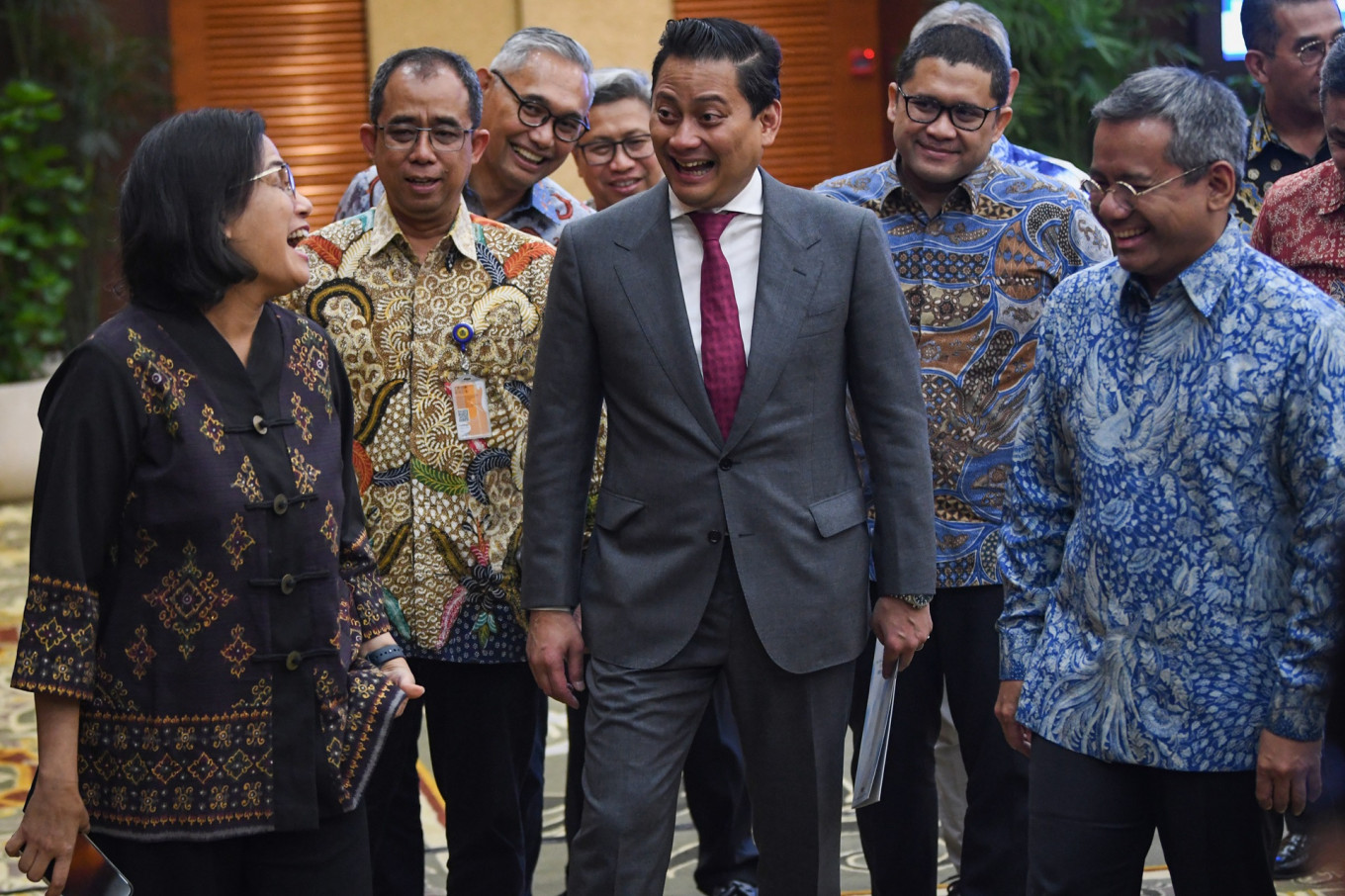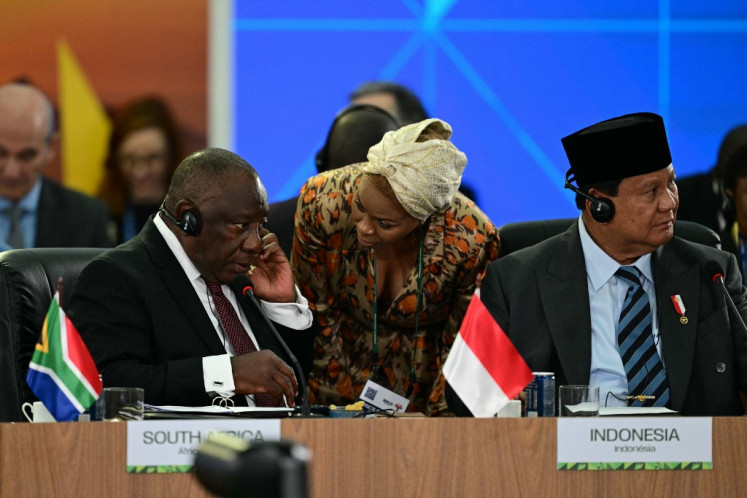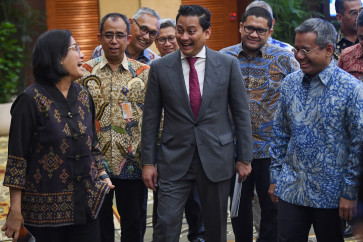Popular Reads
Top Results
Can't find what you're looking for?
View all search resultsPopular Reads
Top Results
Can't find what you're looking for?
View all search resultsCentralized, stronger oversight of key financial professionals
A single authority has been established for a consistent standard of expertise, ethical conduct and continuous education for the professionals who serve as gatekeepers to Indonesia’s tax regulations.
Change text size
Gift Premium Articles
to Anyone
 Finance Minister Sri Mulyani Indrawati (left) talks with Deputy Finance Ministers Thomas Djiwandono (center) and Suahasil Nazara (right), ministry secretary-general Heru Pambudi (second left), ministry fiscal policy agency head Febrio Nathan Kacaribu (second right) and ministry state wealth director general Rionald Silaban (third left) on July 18, 2024, after a press briefing at the ministry's building in Jakarta. (Antara/Aditya Pradana Putra)
Finance Minister Sri Mulyani Indrawati (left) talks with Deputy Finance Ministers Thomas Djiwandono (center) and Suahasil Nazara (right), ministry secretary-general Heru Pambudi (second left), ministry fiscal policy agency head Febrio Nathan Kacaribu (second right) and ministry state wealth director general Rionald Silaban (third left) on July 18, 2024, after a press briefing at the ministry's building in Jakarta. (Antara/Aditya Pradana Putra)
I
n the domain of public finance, few aspirations are as widely embraced as establishing a transparent and equitable tax regime. After all, the taxes collected by governments fund the roads, schools, healthcare services and social welfare programs that form the backbone of a thriving society.
Yet when financial scandals come to light, whether through high-profile tax evasion or ballooning budget deficits, attention often shifts to the very frameworks and professionals that enable such breaches. In many cases, auditors and tax consultants play pivotal roles in crafting or sustaining practices that drain state coffers, whether knowingly or by leveraging technical expertise in ethically ambiguous ways.
To address these risks, the Finance Ministry has taken decisive action, enacting Ministerial Regulation No. 124/2024 on the Organization and Work Procedures of the Finance Ministry on Dec. 30, 2024. This regulation aims to consolidate and strengthen the government’s capacity to supervise key financial professionals and ensure they operate within clearly defined ethical and legal parameters.
This regulation set up a new Financial Sector Stability and Development Directorate General (Direktorat Jenderal Stabilitas dan Pengembangan Sektor Keuangan) which is responsible for formulating and implementing policies in the financial sector, the financial profession and international cooperation in accordance with existing laws. The directorate was set up to consolidate the licensing, supervision and disciplinary measures related to key professions such as auditor and tax consultants which were previously governed under Ministerial Regulation No. 119/2021 by the Financial Profession Development Centre.
Building on this more centralized approach, the new directorate replaced a previously fragmented system in which auditors and tax consultants operated under diverse ethical codes and licensing procedures, often with limited governmental oversight. Bringing these functions together within a single authority established a consistent standard of expertise, ethical conduct and continuous education for the professionals who serve as gatekeepers to Indonesia’s tax regulations.
This overhaul reflects a significant turning point in how the country addresses misconduct within the financial sector. In the past, authorities often depended on professional associations to investigate and punish misconduct, but these bodies often lacked either resolve or legal authority to impose meaningful penalties.
In contrast, the new directorate is tasked with development, supervision, sanctioning and data utilization for financial professions and financial profession offices. This robust mandate paves the way for more direct accountability, deterring unethical behavior while ensuring that legitimate advisory services remain anchored within the bounds of the law.


















